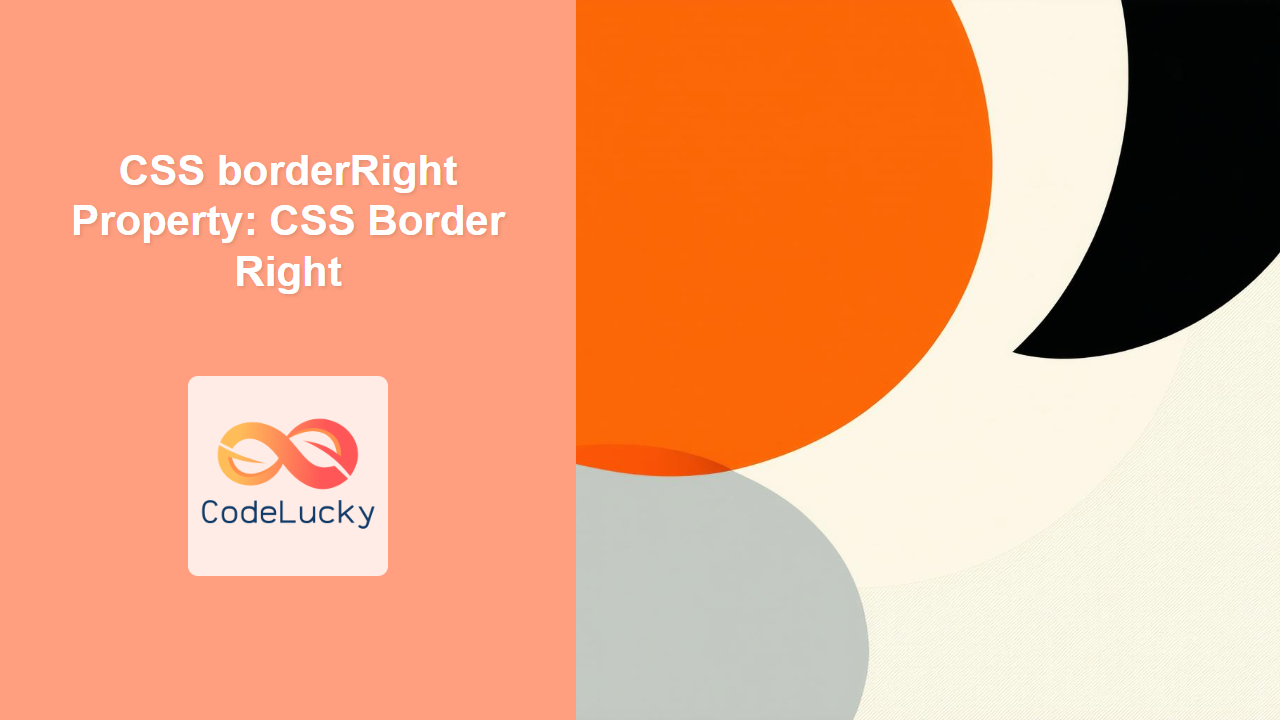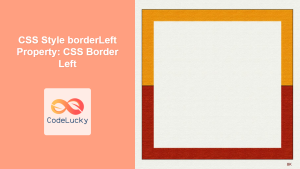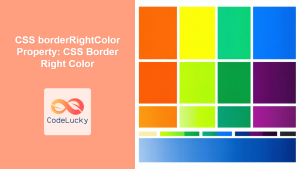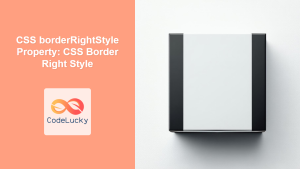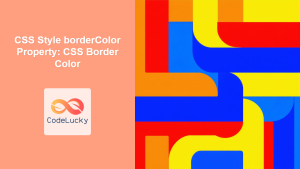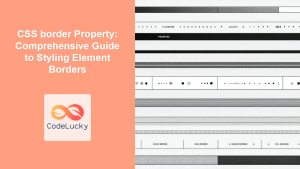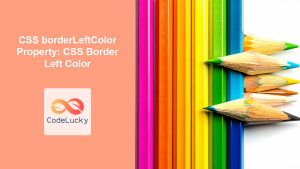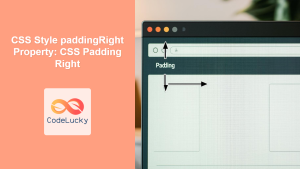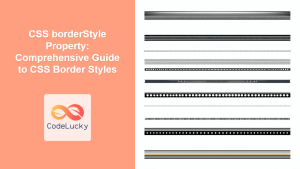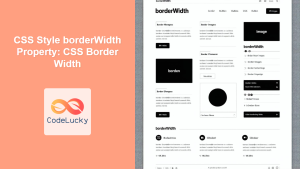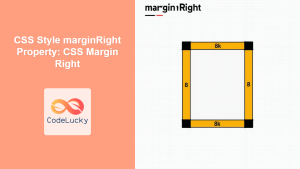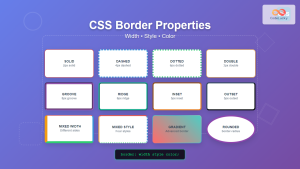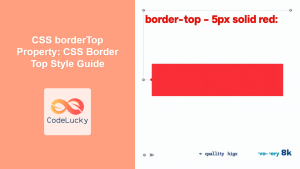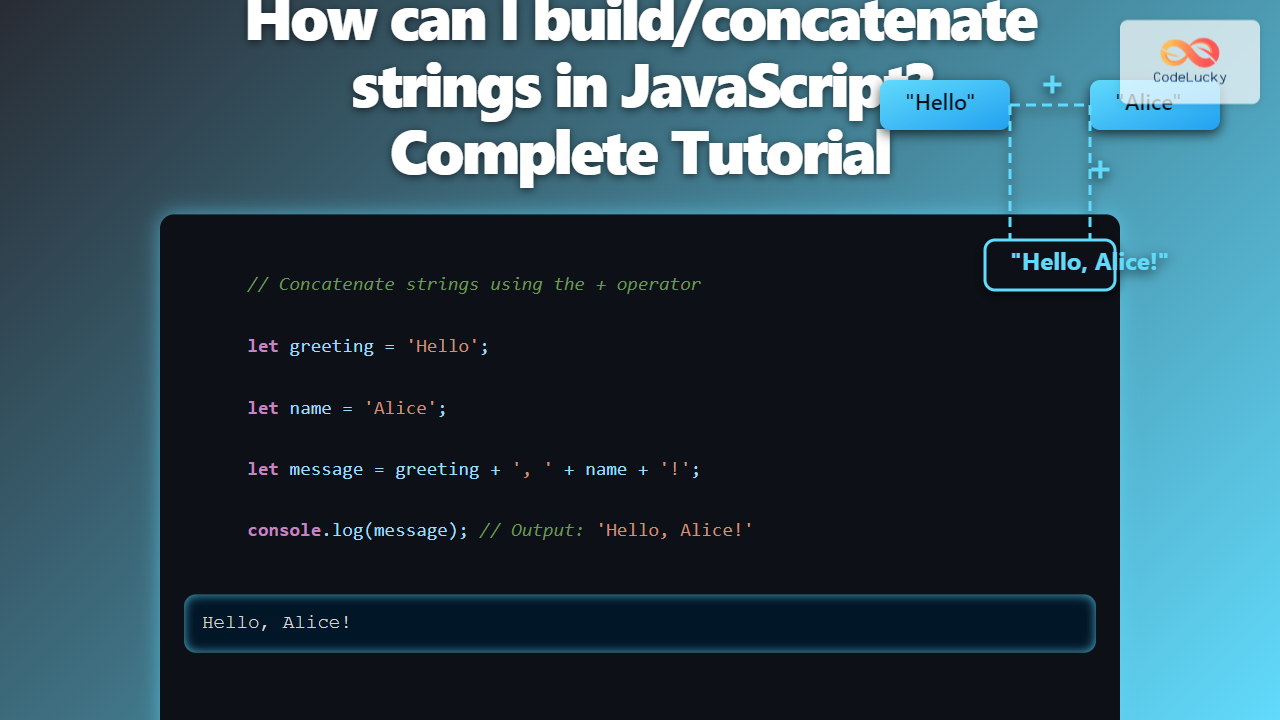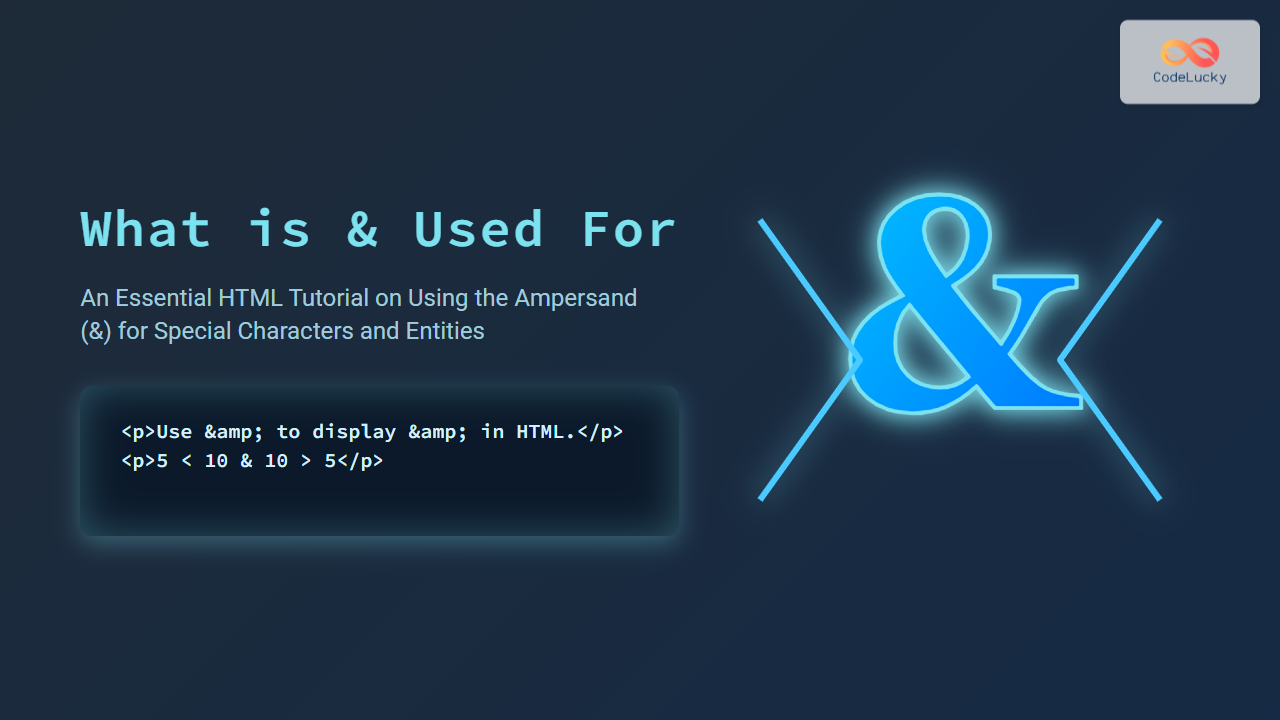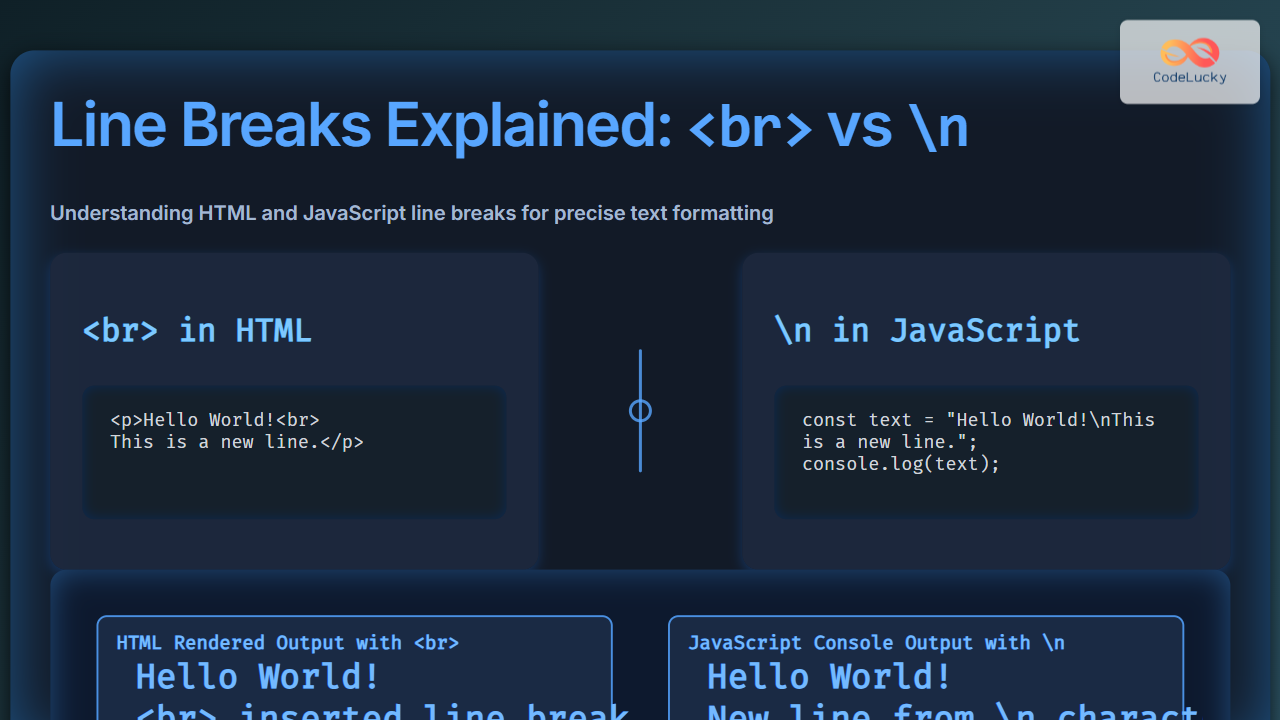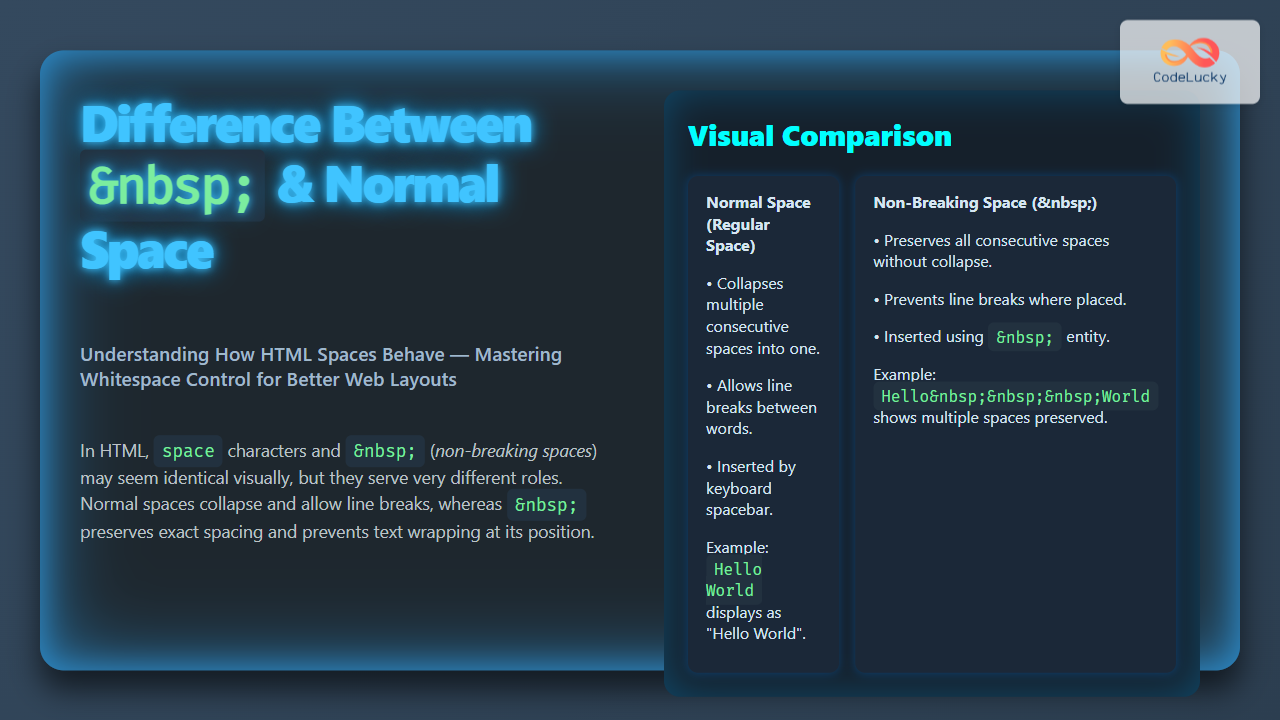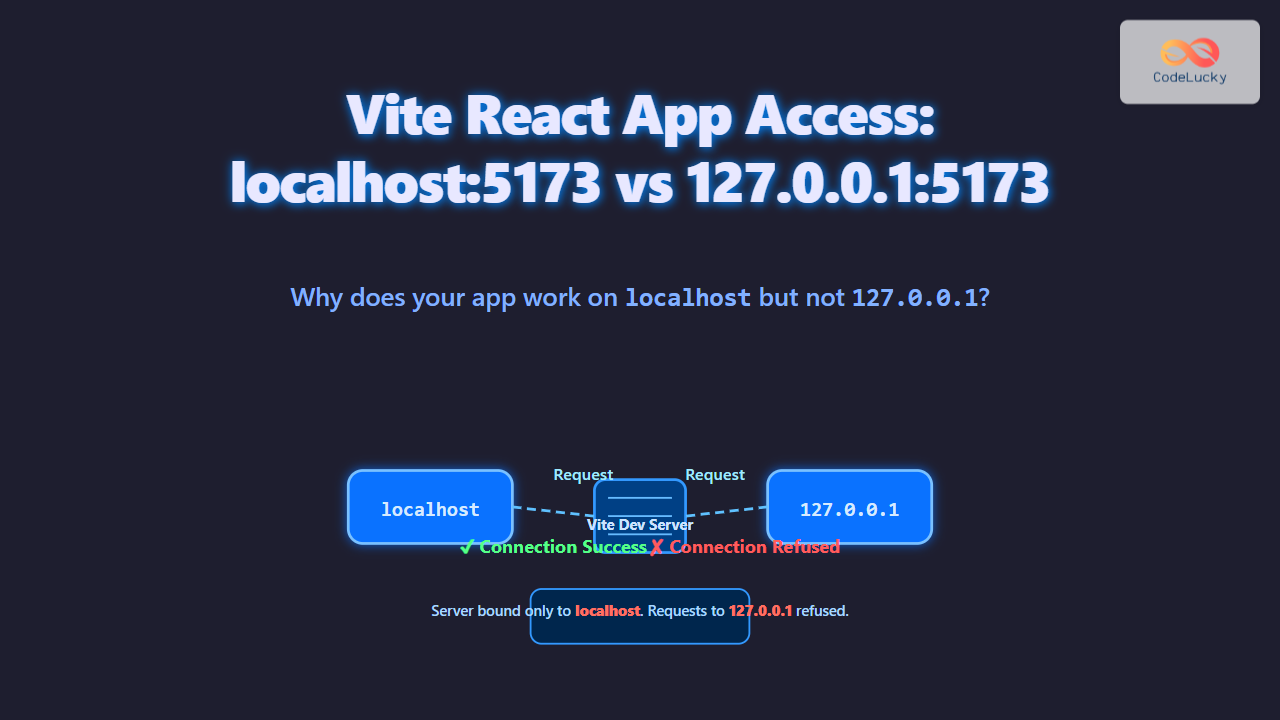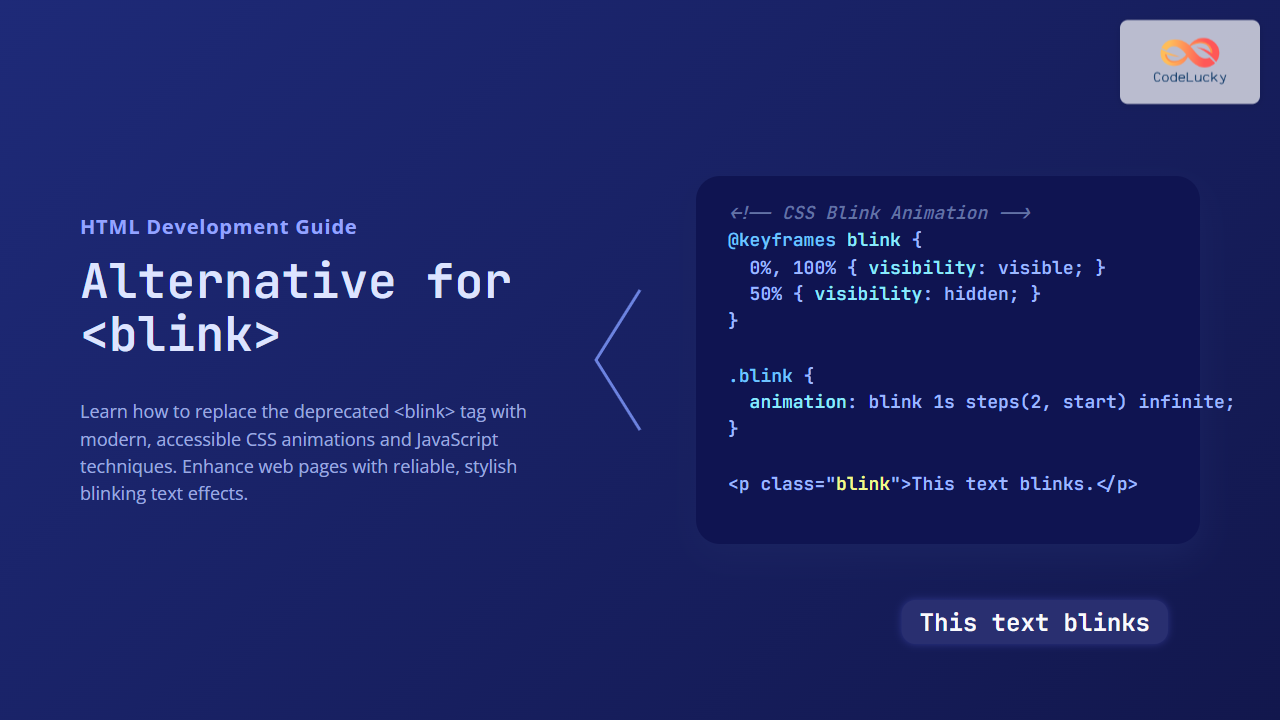CSS border-right Property: A Comprehensive Guide
The border-right property in CSS is used to set all the properties of an element’s right border in a single declaration. It is a shorthand property for setting border-right-width, border-right-style, and border-right-color. This property allows you to quickly and efficiently style the right border of any HTML element, enhancing the visual appeal and structure of your web pages.
Purpose of the border-right Property
The primary purpose of the border-right property is to provide a concise way to define the width, style, and color of an element’s right border. By using this shorthand, you can reduce the amount of CSS code needed and make your stylesheets more readable and maintainable.
Syntax
The border-right property can accept one or more of the following values:
border-right: border-width border-style border-color|initial|inherit;
Values
| Value | Description |
|---|---|
| `border-width` | Specifies the width of the right border. Can be `thin`, `medium`, `thick`, or a specific length value (e.g., `2px`). |
| `border-style` | Specifies the style of the right border. Common values include `none`, `hidden`, `dotted`, `dashed`, `solid`, `double`, `groove`, `ridge`, `inset`, and `outset`. |
| `border-color` | Specifies the color of the right border. Can be a color name (e.g., `red`), a hexadecimal value (e.g., `#ff0000`), an RGB value (e.g., `rgb(255, 0, 0)`), or an HSL value (e.g., `hsl(0, 100%, 50%)`). |
| `initial` | Sets the property to its default value. |
| `inherit` | Inherits this property from its parent element. |
Basic Examples
Let’s explore some basic examples of using the border-right property. Each example includes the necessary HTML and CSS code to demonstrate different border styles.
Example 1: Solid Right Border
This example demonstrates a solid right border with a specified width and color.
<div id="border-right-example1" style="width: 200px; height: 100px;">
This element has a solid right border.
</div>
<style>
#border-right-example1 {
border-right: 5px solid blue;
}
</style>
Example 2: Dashed Right Border
This example showcases a dashed right border with a different width and color.
<div id="border-right-example2" style="width: 200px; height: 100px;">
This element has a dashed right border.
</div>
<style>
#border-right-example2 {
border-right: 3px dashed red;
}
</style>
Example 3: Dotted Right Border
Here’s an example of a dotted right border with a specified width and color.
<div id="border-right-example3" style="width: 200px; height: 100px;">
This element has a dotted right border.
</div>
<style>
#border-right-example3 {
border-right: 2px dotted green;
}
</style>
Example 4: Double Right Border
This example displays a double right border with a specified width and color.
<div id="border-right-example4" style="width: 200px; height: 100px;">
This element has a double right border.
</div>
<style>
#border-right-example4 {
border-right: 4px double orange;
}
</style>
Advanced Usage and Practical Examples
Let’s explore some advanced and practical examples of using the border-right property.
Example 5: Creating a Vertical Separator
This example demonstrates how to use border-right to create a vertical separator between two div elements.
<div style="display: flex;">
<div id="border-right-example5a" style="width: 150px; height: 100px; text-align: center;">
Left Content
</div>
<div id="border-right-example5b" style="width: 150px; height: 100px; text-align: center;">
Right Content
</div>
</div>
<style>
#border-right-example5b {
border-right: 2px solid #ccc;
}
</style>
Example 6: Styling Navigation Menus
Using border-right to style navigation menu items to provide visual separation.
<ul id="nav-menu">
<li><a href="#">Home</a></li>
<li><a href="#">About</a></li>
<li><a href="#">Services</a></li>
<li><a href="#">Contact</a></li>
</ul>
<style>
#nav-menu {
list-style: none;
padding: 0;
margin: 0;
display: flex;
}
#nav-menu li a {
display: block;
padding: 10px 15px;
text-decoration: none;
color: #333;
border-right: 1px solid #ddd;
}
#nav-menu li:last-child a {
border-right: none; /* Remove border from the last item */
}
</style>
Example 7: Highlighting Table Columns
Using border-right to highlight specific columns in a table.
<table id="data-table">
<thead>
<tr>
<th>Name</th>
<th>Age</th>
<th>City</th>
</tr>
</thead>
<tbody>
<tr>
<td>John Doe</td>
<td>30</td>
<td>New York</td>
</tr>
<tr>
<td>Jane Smith</td>
<td>25</td>
<td>Los Angeles</td>
</tr>
</tbody>
</table>
<style>
#data-table {
width: 100%;
border-collapse: collapse;
}
#data-table th,
#data-table td {
border: 1px solid #ddd;
padding: 8px;
text-align: left;
}
#data-table th:nth-child(2),
#data-table td:nth-child(2) {
border-right: 2px solid blue;
}
</style>
| Name | Age | City |
|---|---|---|
| John Doe | 30 | New York |
| Jane Smith | 25 | Los Angeles |
Example 8: Creating a Callout Box
Using border-right to create a visually distinct callout box.
<div id="callout-box">
<p>This is a callout box with a highlighted right border.</p>
</div>
<style>
#callout-box {
padding: 15px;
margin: 20px;
border-right: 5px solid #ff9900;
background-color: #f9f9f9;
}
</style>
This is a callout box with a highlighted right border.
Key Considerations
- Specificity: Ensure your
border-rightstyles are not overridden by more specific CSS rules. - Shorthand Overrides: When using
border-right, it overrides individualborder-right-width,border-right-style, andborder-right-colorsettings. - Accessibility: Ensure that borders enhance rather than detract from the accessibility of your content. Use sufficient contrast and avoid relying solely on borders to convey meaning.
Browser Support
The border-right property is supported by all modern browsers, ensuring consistent rendering across different platforms.
Conclusion
The border-right property in CSS is a versatile tool for styling the right border of HTML elements. By understanding its syntax and exploring practical examples, you can effectively use it to enhance the visual appeal and structure of your web pages. From creating vertical separators to styling navigation menus and highlighting table columns, the possibilities are vast. Happy styling! 🎨

